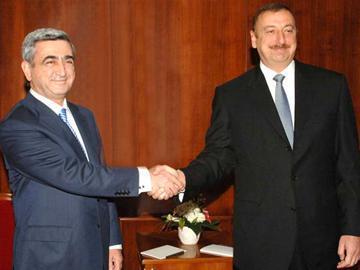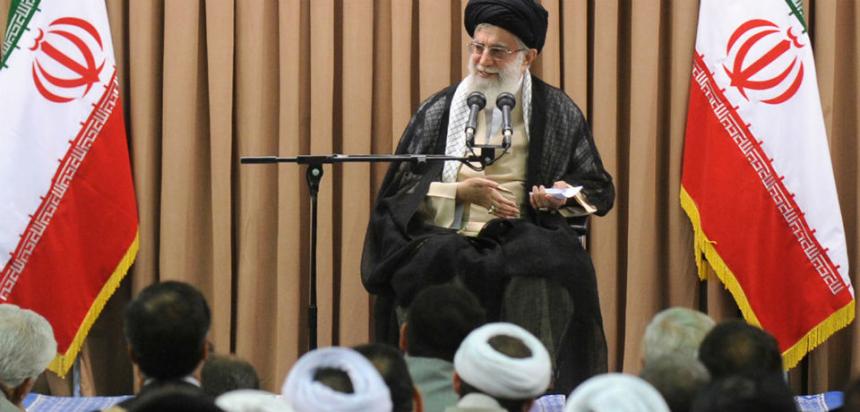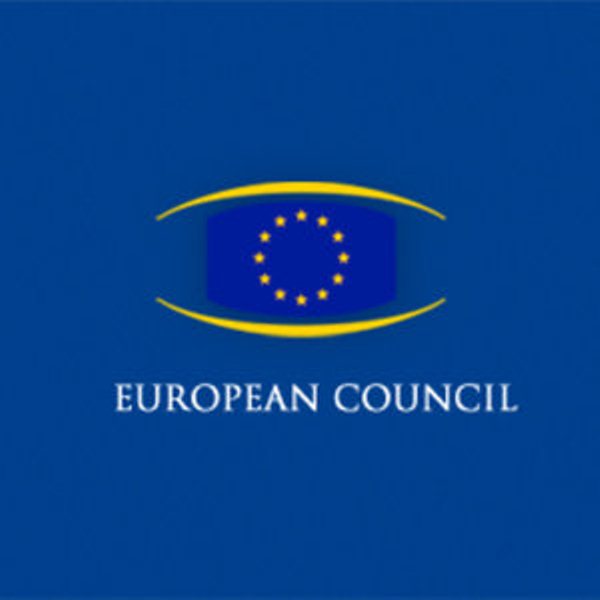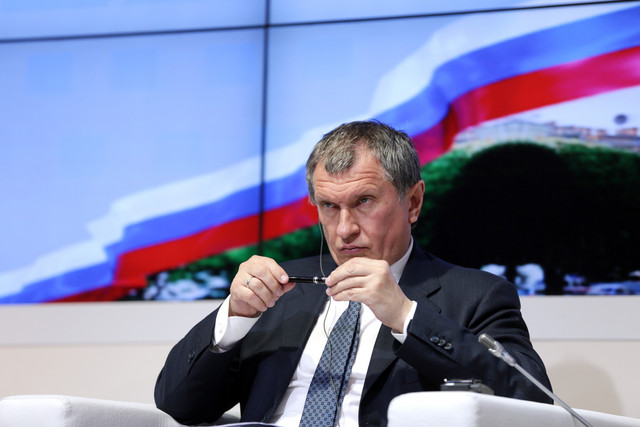
In January 2004, Hungary hosted NATO’s Partnership for Peace program, where military personnel from partner states, including Armenia and Azerbaijan, were invited to participate in a series of English language courses. Following what was perceived as an insult to the Azerbaijani flag by Armenian army lieutenant Gurgen Margaryan, Ramil Safarov murdered Margaryan. Safarov was convicted on April 13, 2006, by a Hungarian court which sentenced him to life imprisonment without possibility of a pardon until 2036. The diplomatic crisis began on August 31, 2012, when the Hungarian government extradited Safarov back to Azerbaijan. In a bold move, Azerbaijani President Ilham Aliyev decided to pardon Safarov. Back home, Safarov was greeted as a national hero, promoted to the rank of major, provided an apartment, and received eight years of back pay which he had lost since his arrest eight years ago. This created a diplomatic issue between Yerevan, Baku, and Budapest, resulting in the Armenian government severing diplomatic ties with Hungarian government over the extradition. Budapest has publicly condemned the action of President Ilham Aliyev, believing it contradicts the relevant rules of international law and the spirit of cooperation based on mutual trust.
Since the pardon of Safarov, tension has risen considerably between Armenia and Azerbaijan; conflict erupted on Monday where five Armenian soldiers were killed in clashes with Azerbaijan troops along the common border. Western nations are worried the formal ceasefire between Armenia and Azerbaijan is now looking increasingly fragile. US Secretary of State Hilary Clinton while embarking on a tour of the South Caucasus, warned, “I am very concerned by these incidents and have called on all parties, all actors, to refrain from the use or threat of force…… There is a danger that it could escalate into a much broader conflict that would be very tragic for everyone concerned.”
Armenian President Serzh Sargsyan cautioned Azeri President Ilham Aliyev that it was ready for war in a statement, he said, “We don’t want a war, but if we have to, we will fight and win. We are not afraid of killers, even if they enjoy the protection of the head of state.”
Meanwhile in Hungary, the largest opposition party, the Hungarian Socialist Party (MSZP) stated, “It was waiting for an explanation of the events and called for Hungarian foreign minister János Martonyi to resign.” In addition, Former Prime Minister Ferenc Gyurcsány criticized the current Hungarian government because, “It is willing to hawk the honour of the country for 30 pieces of silver and release a murderer from deserved execution of a prison sentence… It is hardly in a position to introduce ethics teaching in schools.” His remark was an allusion to reports in the weekly news magazine HVG; the Azerbaijan government had pledged to buy Hungarian government bonds with a value of as much as EUR 3 billion in exchange for handing over Safarov.
Armenia–Azerbaijan Relations

The conflict between Armenia and Azerbaijan ignited as the Soviet Union collapsed. Azerbaijan and Armenia, both former Soviet republics, fought over the enclave of Nagorno-Karabakh in the early 1990s. The conflict left some 30,000 people dead and displaced hundreds of thousands. The war ended in a ceasefire in 1994. From 1988-1994 – their relations, or the lack thereof, have been shaped by the conflict over the Nagorno-Karabakh region. There are no formal diplomatic relations between the two countries because of the ongoing disagreement. Negotiations have so far failed to produce a permanent peace agreement, and the dispute remains one of post-Soviet Europe’s frozen conflicts. Both sides have had sporadic breaches of the ceasefire which resulted in causalities. The closure of borders with Turkey and Azerbaijan has caused landlocked Armenia severe economic problems. Since the truce, a simmering stalemate has prevailed. The Azerbaijanis resent the loss of land they regard as rightfully theirs, while the Armenians show no sign of willingness to give it back. Also, 20% of fully Azeri land −outside of Karabakh− is occupied by the Armenians. Russia, France and the US co-chair the OSCE’s Minsk Group which has been attempting to broker an end to the dispute. Significant progress was reported at talks between the leaders in May and November 2009, but progress then stalled, and in 2010-11, there were a number of serious ceasefire violations.
What the International Community is Saying.
United States: Both the United States National Security Council and the State Department expressed concern over the matter and reported that Azerbaijan had been asked to explain its decision.
Russia: On September 3, the Russian Ministry of Foreign Affairs stated, “Russia was deeply concerned by the reports of pardon of Azerbaijani soldier Ramil Safarov and the preceding decision of the Hungarian authorities to extradite him to Azerbaijan.” Ministry spokesmen Lukashevich also said, “We believe that these moves by Azerbaijani and earlier by Hungarian government run against the efforts of OSCE Minsk Group to lessen the tension in the region.”
Sweden: Swedish Foreign Minister Carl Bildt tweeted, “Strange decision in Azerbaijan to pardon man having murdered an Armenian in Hungary. Rule of law must apply.”
European Union: EU Foreign Affairs Representative Catherine Ashton and European Commissioner for Enlargement and European Neighborhood Policy Štefan Füle announced that they are, “Concerned by the news that the President of Azerbaijan has pardoned Azerbaijani army officer Ramil Safarov”. They called on Azerbaijan and Armenia, “To exercise restraint, on the ground as well as in public statements, in order to prevent an escalation of the situation in the interest of regional stability and ongoing efforts towards reconciliation”.
OSCE Minsk Group: The OSCE Minsk Group said, “Azerbaijan’s pardoning of a military officer who murdered an Armenian officer has harmed attempts to establish peace between the countries.”
Collective Security Treaty Organisation: Secretary-General Nikolay Bordyuzha stated, “Azerbaijan’s decision to pardon Safarov is against international law…. This move was obviously done for the sake of short-term political goals and cannot be justified by anything.”




